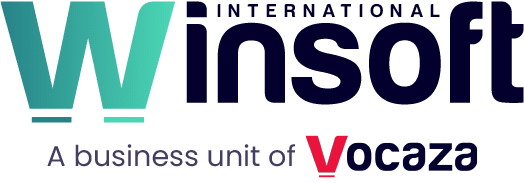10 questions to ask before choosing the right platform to run your business
Choosing the right custom solution starts with the right questions. Discover the key considerations to ensure your next business app is scalable, flexible, insight-driven—and built to last.
Cathy
23 June 2025
•
 4
4
min
As businesses increasingly look for ways to streamline processes, manage data more effectively, or automate workflows, selecting the right platform for your business is a critical decision that can impact your operations for years to come.
Not every platform is right for every organization—and a one-size-fits-all approach often falls short.
Before choosing a platform or investing in a tailored solution, here are 10 important questions to consider:
1. What specific business problems are you trying to solve?
This might seem obvious, but it’s the most critical starting point.
Are you struggling with fragmented data, manual processes, inefficient workflows, or a lack of real-time insights?
Don’t just pick a tool, ensure it’s the right tool for your specific requirements.
2. What are your current and future data management needs?
Before diving into choosing a solution, thoroughly assess your data management requirements.
How much data do you currently handle, and what growth do you anticipate over the next three to five years?
Consider the complexity of your data relationships, the number of concurrent users you’ll need to support, and whether you require real-time data processing.
Understanding these fundamentals will help you determine the right solution to scale with your business growth.
3. What level of technical expertise do you have in-house?
The technical capabilities of your team significantly impact which database platform will work best for your organization. Some solutions require extensive programming knowledge and database administration skills, while others are designed for business users with minimal technical backgrounds.
Do you have people on your team who are comfortable with databases, scripting, or basic app development? If not, are you willing to hire or work with a consultant?
The right tool should match your team’s expertise—or your willingness to invest in learning and maintaining.
4. What’s your budget for initial investment and ongoing costs
Don’t just focus on the cost of the software.
Consider development time, future upgrades, infrastructure, and the cost of ongoing support.
Planning for the full lifecycle will prevent surprises down the line and help you ensure the solution fits your budget now and as you scale.
5. What devices and platforms need to be supported?
Businesses often require access to data from various devices and locations. Your choice should support how your team actually works, whether that’s in the office, remotely, or on mobile devices.
Assess whether your team needs full mobile functionality, web-based access, or desktop applications. Consider the user experience across different devices and operating systems.
Your chosen solution should support the environments where your team operates—seamlessly and securely.
6. What are your security and compliance requirements?
Data security isn’t optional in today’s business environment, and different industries have varying compliance requirements.
Evaluate your security needs based on the type of data you handle and your industry requirements.What kind of sensitive information will your application handle? Do you need features like user authentication, role-based access controls, encryption, or detailed audit trails? Do you need to comply with specific regulations like GDPR, HIPAA, or industry-specific standards?
Your chosen solution must provide adequate security features to protect your data and meet any regulatory obligations.
7. Will the solution need to integrate with other systems?
Most businesses don’t operate with isolated systems, they need their database to communicate with accounting software, CRM systems, e-commerce platforms, or other business applications.
Identify all the systems your database needs to connect with and research the complexity and cost of these integrations. Some integrations may be straightforward, while others might require custom development or third-party tools.
The ease and cost of these integrations can significantly impact your platform choice. Consider both current integration needs and potential future requirements as your business grows and adopts new tools.
8. Will the solution scale with your business growth?
Scalability isn’t just about handling more data—it’s about maintaining performance and functionality as your business grows. Consider both vertical scaling (handling larger datasets and more complex operations) and horizontal scaling (supporting more users and locations).
Consider your growth trajectory: Will your user base expand significantly? Will the volume of data increase exponentially? How will the system perform under increased load, and what strategies (e.g., adding more users, processing more transactions) are in place to ensure it can scale efficiently without sacrificing performance?
Ensure your chosen platform can accommodate that expansion without requiring a complete system overhaul. The right solution should grow with you, not limit your potential.
9. Do you need advanced reporting and analytics?
Beyond storing data, your system should help you understand it.
What kind of reports and dashboards do you need to generate? Do you require real-time analytics, historical trends, or predictive insights? How easily can custom reports be created, and what data visualization capabilities are offered to make complex data understandable and actionable for various users?
Your reporting solution should transform raw data into actionable insights that drive business decisions.
10. Can you trust the vendor behind the solution?
The stability and reputation of your database platform’s vendor is just as important as the technology itself. A platform is only as reliable as the company behind it, and vendor-related risks can significantly impact your business operations.
Evaluate the track record, reputation, and responsiveness of the vendor to ensure you’re investing in a platform that’s here for the long haul.
Making the decision
If, after answering these questions, you find that your business requires a highly customizable, scalable, adaptable, and insight-driven solution backed by a reputable vendor, then Claris FileMaker often emerges as a strong contender.
FileMaker is a powerful low-code development platform that allows businesses to rapidly build tailored applications for desktop, mobile and web.
Here’s why FileMaker stands out:
- Flexibility: Tailor solutions to fit your unique processes and workflows.
- Rapid development: Build and deploy working apps in days or weeks, not months.
- Cross-platform capabilities: Deploy across macOS, Windows, iOS, and the web.
- Robust reporting: Leverage built-in analytics and customizable reports to turn your data into clear, actionable insights.
- Integration options: Connect easily with a wide array of other systems and services.
- Trusted foundation: Developed by Claris, an Apple company with a long-standing reputation for reliability, innovation, and a strong, active community.
Still unsure?
Get a free trial version, and see how it aligns with your team’s day-to-day needs.
Try for free



